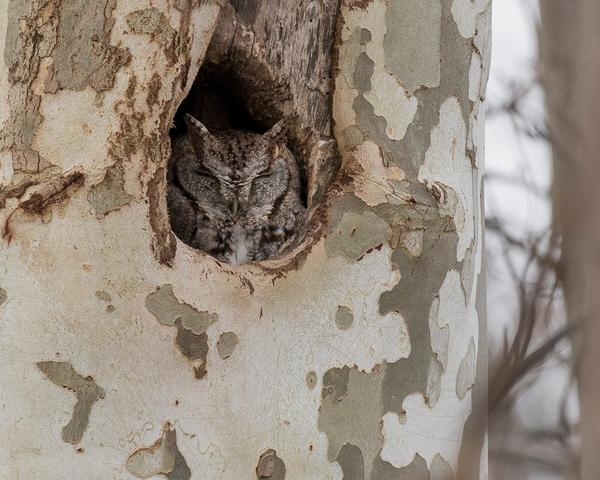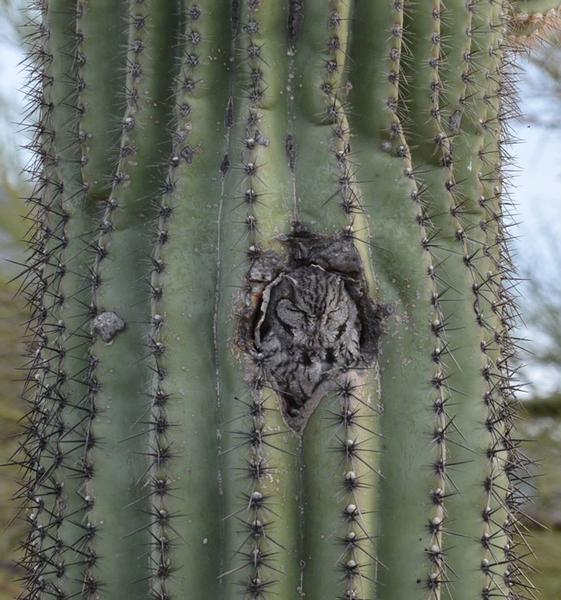
No matter where they roost, screech-owls work to blend into their surroundings.
Above, Tony Bruno found an eastern screech-owl (Megascops asio) in a sycamore in Pennsylvania. Below, Donna Memon has a western screech-owl (Megascops kennicottii) in a saguaro cactus in her Arizona backyard.

These two species look very similar so how do you tell them apart?
By range: Eastern screech-owls live east of the Rockies, westerns live in the Rockies and West but their ranges overlap a little, especially in Texas. The best way to identify them is by voice.
By voice: Eastern screech-owls make monotonic trills and whinny sounds: (Eastern Screech Owl at Xeno-canto #286959 by Tim Spahr)
Western screech-owls are known for their double bouncing-ball trill: (Western Screech Owl at Xeno-canto #383075 by Lance A. M. Benner)
Listen at dusk and you might hear a pair serenading in late winter.
(photo credits: Eastern screech-owl by Tony Bruno, Western screech-owl by Donna Memon)
I’ve heard that sound at night and wondered what was making that sound. I live inFort Myers and heard it from the lanai. Thanks, now I know! I learn a lot from your blogs. Keep up the excellent work!
I wonder if that Tim Spahr who’s credited with the Eastern Screech Owl recording is Sgt. Tim Spahr of the Maine Game Warden Svc who appears on “North Woods Law” on Animal Planet?? Just found out (google) that he’s actually a Pennsylvanian from Wilkes-Barre.
I think I have heard this sound. Didn’t know what it was. Thank you
When I was a child we lived in Dormont, an inner suburb of Pittsburgh. One year I heard a screech owl that apparently lived in our neighbor’s tree. I enjoyed leaning out of my bedroom window at night and hearing it hooting. I was just a child, but you couldn’t mistake it for anything else.